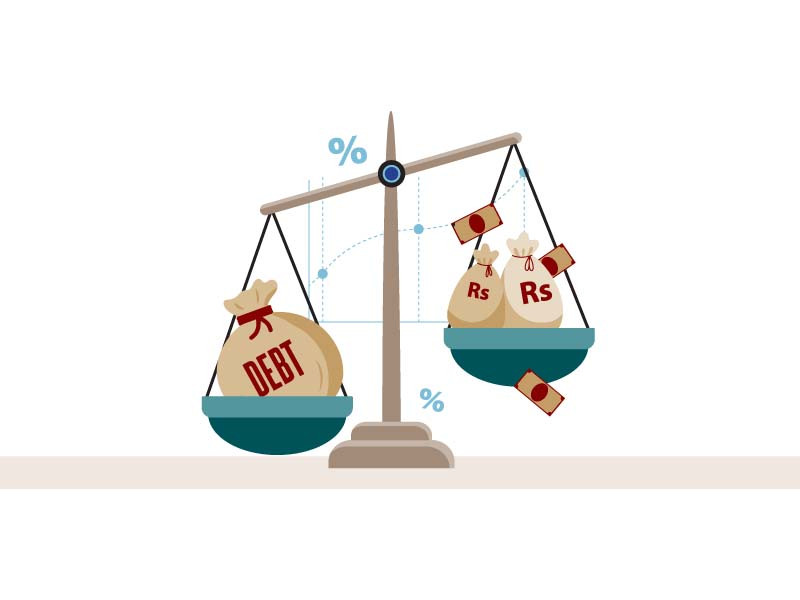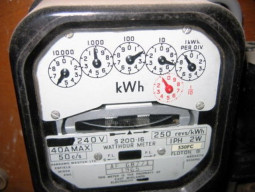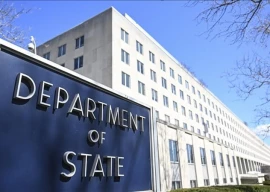
Just two budget heads, namely interest on debt and defence, consumed the colossal chunk of Rs2.2 trillion during first five months of this fiscal year, which was even more than the total net income of the federal government – leading to a severe curtailment of other expenses.
Sources in the Ministry of Finance told The ExpressTribune that during July-November period of the current fiscal year, there was an alarming increase of 83% in the interest cost on the Rs50 trillion federal government debt stock. The Ministry of Finance paid nearly Rs1.7 trillion in the interest cost, up by Rs763 billion or 83%, according to the sources. Similarly, excluding military pensions and expenses on the armed forces development programme, Rs517 billion was spent on defence in five months. It was Rs112 billion or nearly 28% more than the previous fiscal year, according to the sources.
The cumulative spending on debt servicing and defence remained at Rs2.2 trillion, equivalent to 107% of the federal government’s net income. The net income of the federal government was Rs2.04 trillion, after paying the provinces their shares under the National Finance Commission award.
At this, the Finance Ministry did not make any comment. Despite spending the entire net earnings on just two budget heads, the country is not able to find a solution to the debt trap and security situation which is once again deteriorating rapidly due to flawed policies of the state.
Read PM says govt still has time to fix economy
The risks of sovereign defaults are very high in the absence of an International Monetary Fund (IMF) umbrella and no major cash handouts by bilateral creditors.
Compared to the huge spending of Rs2.2 trillion on debt servicing and defence, only Rs119 billion was spent on development. The spending on development is Rs133 billion or 53% less than that in the previous fiscal year.
All the other expenses of the federal government amounted to Rs1.15 trillion, also down by Rs160 billion or 12%. As a result of uncontrolled spending on debt servicing, coupled with massive slippages against the annual circular debt reduction plan, the government will miss the annual primary budget deficit target agreed with the IMF.
Consequently, the federal budget deficit widened to over Rs1.43 trillion in the first five months of the current fiscal year, as the rise in current expenditure was more than growth of gross revenues due to uncontrolled spending on debt servicing. The federal budget deficit, the gap between expenses and revenues, was equal to 1.7% of the GDP. In nominal terms the deficit was low compared to last year due to the inflated size of the economy on the back of 25% inflation rate.
The federal government booked a primary surplus of Rs251 billion or 0.3% of the GDP. During the current fiscal year, the federal government’s total expenditure shot up to Rs3.46 trillion, 20% or Rs570 billion higher than the comparative period last year. But the current expenditure of the federal government rose to nearly Rs3.35 trillion. There is an increase of 27% or Rs704 billion in the current expenses, compared to the same period a year ago. During the July-November period of the current fiscal year, 63% of the total expenses were on account of just two heads; interest payments on loans and defence. This left very few funds behind to spend on the welfare and development of the country.
Under the IMF programme, Pakistan has committed converting the primary deficit, calculated after excluding interest payments, into a surplus of 0.2% of GDP, down from last fiscal year’s 3.6%.
Read More Roosevelt Hotel to be given on lease
However, the World Bank in its Post Disaster Need Assessment (PDNA) report of the flood stated that due to the floods, the country may run an overall primary deficit of 3% of the GDP again in the current fiscal year. Gross revenues of the federal government increased to Rs3.55 trillion, higher by Rs716 billion or 25%. The federal government transferred Rs1.5 trillion to provinces as their share in federal taxes, which was 12% higher than last year.
During the first five months, the Federal Board of Revenue’s (FBR) tax collection remained at Rs2.69 trillion, up by Rs373 billion or 16%. The FBR, however, is set to miss December’s target with a wide margin.
Non-tax revenues amounted to Rs864 billion, up by Rs245 billion or 40% on the back of higher petroleum levy collection.
After incorporating the cash surplus of Rs175 billion achieved by the provincial governments, the overall deficit of the country stood at Rs1.25 trillion or 1.5% of the GDP. The overall primary balance was Rs425 billion or 0.5% of the GDP.
However, going forward the federal government will have serious problems in maintaining this trend due to a dip in revenues and seasonal higher expenses that start shooting up from December onwards and peak in June.
























COMMENTS
Comments are moderated and generally will be posted if they are on-topic and not abusive.
For more information, please see our Comments FAQ